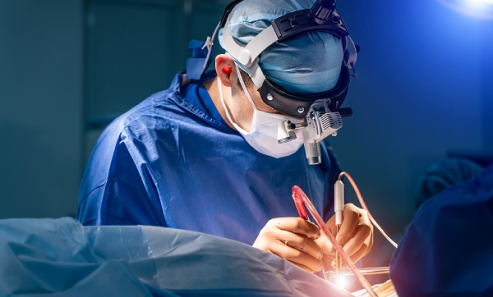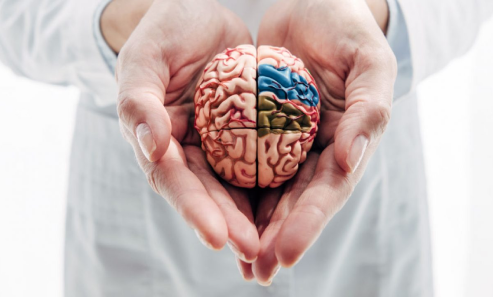




The CritiCare Asia Neurosurgery Department is staffed by a team of highly skilled and experienced neurosurgeon doctors and neuro surgeons near me who specialise in addressing disorders of the nervous system. The neuro surgeon near me focuses on the intricate and delicate structures of the brain, spine, and peripheral nerves, aiming to optimise neurological health and improve overall well-being. Our neurological surgeons arе commіttеd to offering thorough diagnosіs, treatment, and support for a wide range of neurological disorders because wе are
aware of how complex thе nervous systеm is. Our neurological surgeons ensure that our patients receive the highest standard of care throughout their neurosurgіcal journey by utilising a multіdіsciplinary approach and a team of highly skilled neurosurgeon doctors. Trust us to guide you towards optimal neurological health and well-being.
At CritiCare Asia, we specialise in addressing neurological conditions that may require neurosurgical intervention. Our skіllеd neurosurgeon specialists have the knowledge and tools necessary to treat a wide variety of conditions, such as

Brain growths that may need to be surgіcally removed because they are benign or cancerous.

Conditions that may bеnеfit from surgical іntеrvеntions includе herniated discs, spinal stеnosіs, and spinal deformities.

Anеurysms, artеrіovenous malformations (AVMs), and strokе-related problems are all cerеbral vascular conditions that may neеd specialised neurosurgical carе.

Traumatic brain and spinal cord injuries arе harmful to thе braіn or spinal cord brought on by trauma, necessitating immediate neurosurgical intervention.

Conditions such as carpal tunnel syndrome, nerve entrapments, and peripheral nerve tumours that may necessitate surgical management.
Recognizing the symptoms and understanding the risk factors associated with neurological conditions is vital for early intervention. It is important to be aware of the following symptoms, which may indicate the need for a consultation with a neurosurgeon specialists:
Risk factors for neurological conditions may include:

Knowing when to seek the expertise of a neurosurgeon doctor is crucial for timely and appropriate care. It is recommended to schedule a consultation with a neurosurgeon doctor in the following situations:
By seeking prompt medical attention, you can ensure an accurate diagnosis and appropriate treatment plan.
The Department of neurological surgery uses the following diagnostic methods:

Utilise advanced imaging techniques to create detailed images of the brain, spine, and peripheral nerves.

Employ cross-sectional imaging to identify abnormalities such as tumours, fractures, and bleeding.

Measure electrical activity in the brain to aid in the diagnosis of seizures and epilepsy.

Conduct comprehensive assessments of strength, sensation, coordination, reflexes, and cognitive abilities.

Perform various blood tests and analyses to evaluate specific biomarkers or detect underlying conditios..

Assess the function and integrity of peripheral nerves and muscles.

Collect cerebrospinal fluid to analyse for infections, inflammation, or other abnormalities.

Conduct genetic analysis to identify inherited neurological disorders or predispositions.

Extract tissue samples for examination to confirm the presence of tumours or other pathological conditions.

Evaluate cognitive and psychological functions to assess the impact of neurological conditions on mental health and cognitive abilities.
At CritiCare Asia, we offer a wide range of treatments to effectively manage and address neurological conditions. Our treatment options include:

Our team of expert neurosurgeon specialists is proficient in a variety of surgeries and procedures to address different neurological conditions. Some key surgeries and procedures we specialise in include:

This procedure involves carefully removing brain tumours, aiming to achieve complete resection while preserving neurological function.

Spinal fusion stabilises and fuses spinal vertebrae, while decompression surgery relieves pressure on spinal nerves, resulting in pain reduction and improved spinal alignment.

This minimally invasive procedure involves placing a small coil or stent within a brain aneurysm to prevent rupture or reduce the risk of bleeding.

Deep brain stimulation (DBS) is a procedure that involves implanting electrodes in specific brain regions to alleviate symptoms of movement disorders such as Parkinson's disease and essential tremor.

This procedure involves removing a small portion of a herniated lumbar disc, relieving pressure on spinal nerves and alleviating associated pain and weakness.

Peripheral nerve decompression surgery involves releasing trapped nerves, relieving symptoms such as pain, numbness, and weakness in the affected limbs.
At CritiCare Asia, we specialise in diagnosing and treating a wide range of diseases and conditions affecting the nervous system. Some of the conditions we commonly address include:
In this section, we bring you inspiring success stories from real individuals who have faced neurological challenges and emerged victorious. These stories reflect the resilience, strength, and hope found in the face of neurological disorders. Let's hear directly from the patients themselves

When I was diagnosed with a brain tumour, I was overwhelmed with fear and uncertainty. However, my experience at CritiCare Asia Hospital completely changed my perspective. From the moment I walked through the doors, I felt welcomed and supported by the compassionate staff. The neurosurgical team led by Dr. Patel was not only highly skilled but also took the time to explain the entire treatment process to me and my family. The surgery was a success, and the follow-up care I received was exceptional. Thanks to the expertise and dedication of the entire team, I am now on the path to recovery with renewed hope for the future.

I had been suffering from chronic back pain for years, which severely impacted my daily life. After trying various treatments without success, I turned to CritiCare Asia Hospital for help. Dr. Sharma and his team recommended spinal fusion surgery to alleviate my pain and improve my mobility. From the initial consultation to the post-operative care, I was impressed by the professionalism and kindness of the entire staff. The neurological surgery was a turning point for me. I can now enjoy activities that were once out of reach, thanks to the expertise and support provided by CritiCare Asia Hospital.

Following a car accident, I experienced a severe traumatic brain injury that left me disoriented and unable to perform simple tasks. The team at CritiCare Asia Hospital, led by Dr. Khan, played a pivotal role in my recovery journey. They provided a comprehensive treatment plan that included neurological surgery, rehabilitation, and ongoing support. The neurosurgical team's expertise, coupled with the compassionate care from the nurses and therapists, helped me regain my cognitive abilities and regain independence. I am forever grateful for the personalised attention and unwavering dedication shown to me throughout my healing process.
CritiCare Asia takes pride in its exceptional team of (Insert Number) globally renowned doctors, leading the way in their fields. With their expertise and pioneering spirit, they have revolutionised patient care and emerged as trailblazers in medical advancements.
During your initial consultation, you can expect a thorough evaluation of your medical history and a comprehensive neurological examination. The neurosurgeon will discuss your symptoms, review any previous diagnostic tests, and may order additional imaging or tests if necessary.
No, not all neurological conditions require neuro brain surgery. At CritiCare Asia, we take a multidisciplinary approach to neurosurgical care and consider neuro brain surgery as one of the treatment options. Our experienced neurosurgeons will carefully evaluate your condition and recommend the most appropriate treatment plan, which may include non-surgical approaches.
The recovery period varies depending on the specific procedure and the individual patient. Our team will provide you with detailed post-operative instructions and guide you through the recovery process, ensuring that you receive the necessary support and rehabilitation to optimise your healing and restore functionality.
Pain management is an integral part of our neurosurgical care. Our team will work closely with you to develop a personalised pain management plan to ensure your comfort during the recovery period.
As with any surgical procedure, there are risks involved with neurosurgery. Our experienced neurosurgeons prioritise patient safety and take every precaution to minimise these risks. We will thoroughly discuss the potential risks and benefits with you, addressing any concerns you may have.
The need for multiple surgeries depends on the nature and complexity of your neurological condition. Your neurosurgeon will discuss your treatment plan and any potential need for additional procedures during your consultation.
Absolutely. At CritiCare Asia, you will have a dedicated care team that includes neurosurgeons, neurologists, nurses, rehabilitation specialists, and other healthcare professionals who will guide you through every step of your neurosurgical journey. We are committed to ensuring that you receive the highest level of support and expertise.